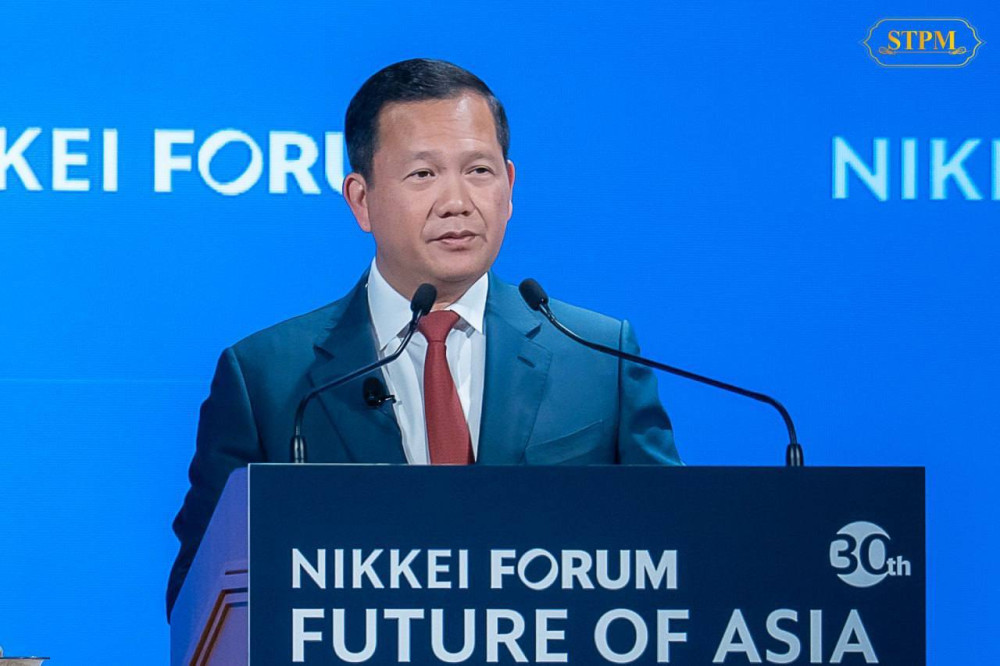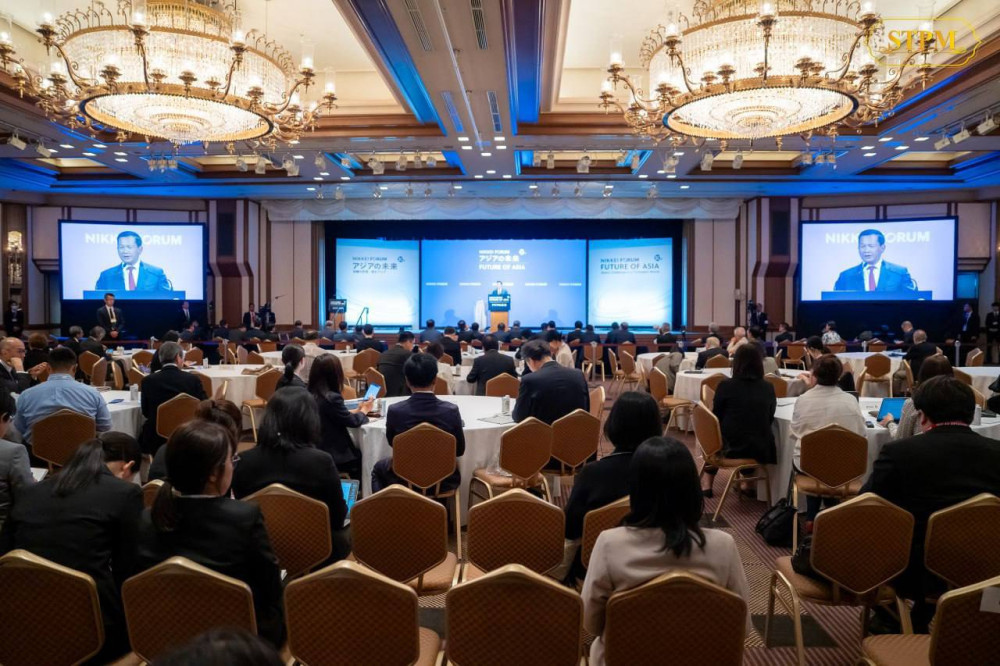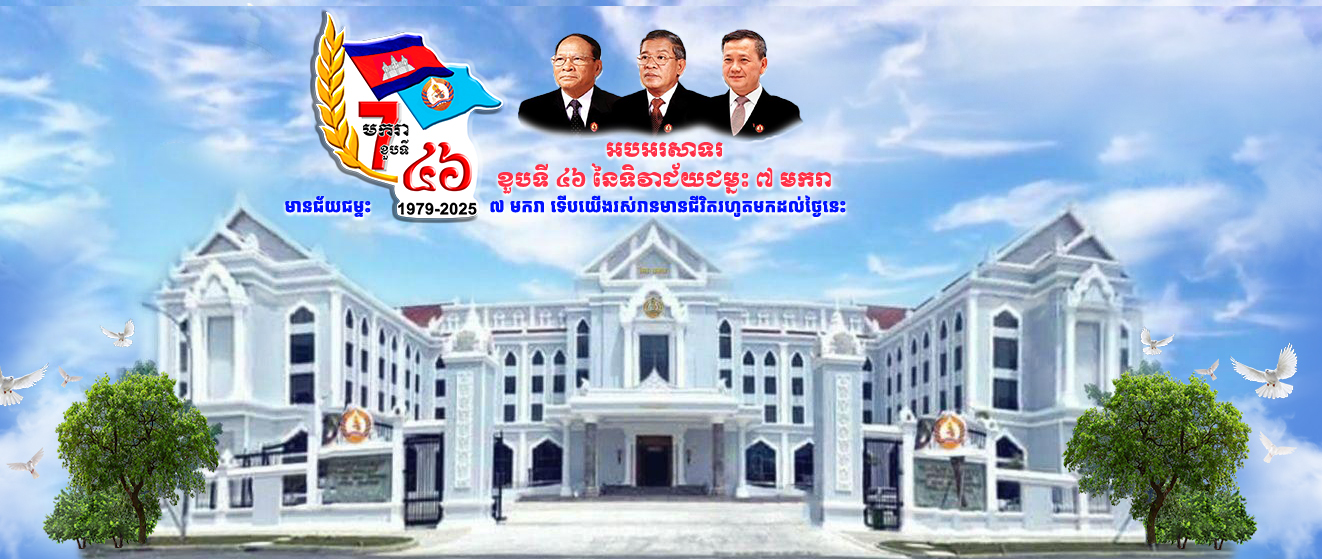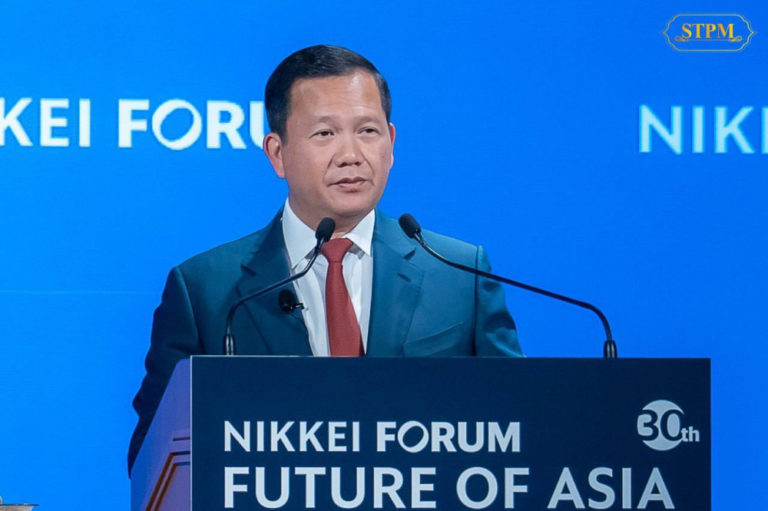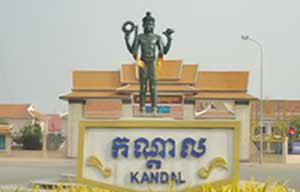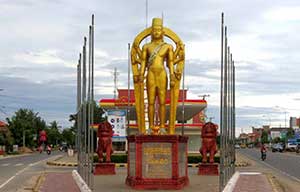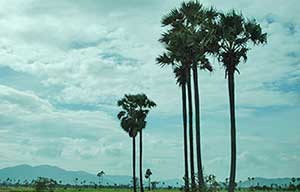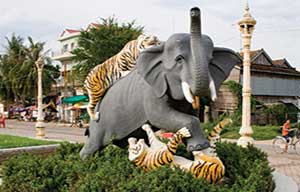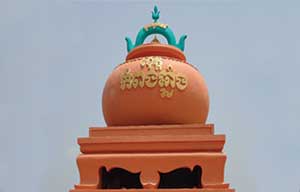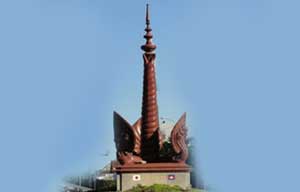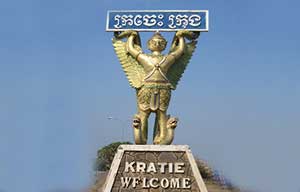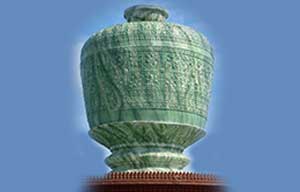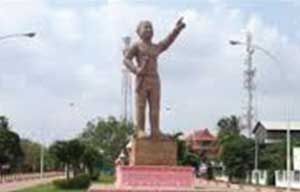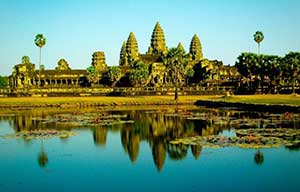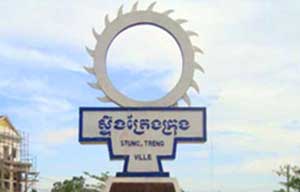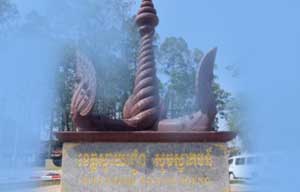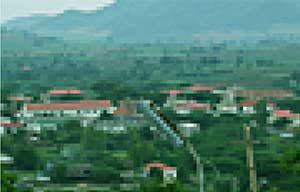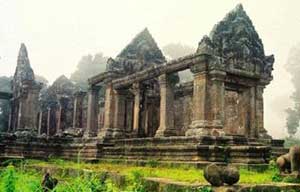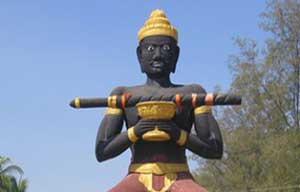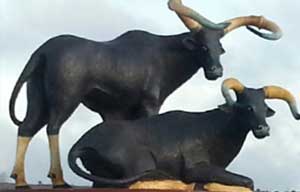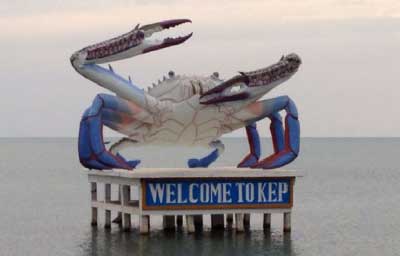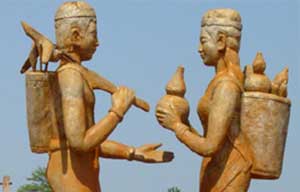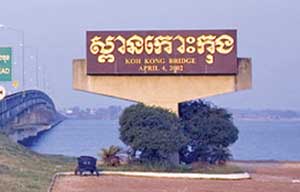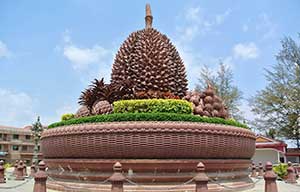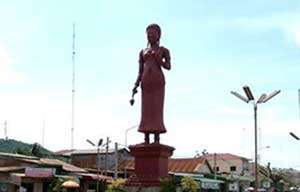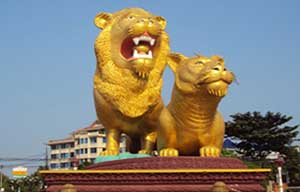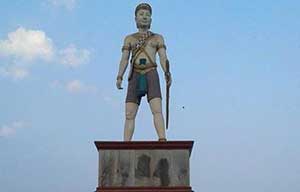Prime Minister Samdech Moha Borvor Thipadei Hun Manet has shared Cambodia’s view on the current situation as well as its utmost commitment to peace and stability for the sake of sustainable development and people’s well-being in the region.
In his keynote speech at the 30th Nikkei Forum on “Future of Asia” under the topic “Asia’s Challenge in a Turbulent World,” in Tokyo, Japan this morning, Samdech Thipadei Hun Manet raised three major concerns – territorial conflicts, trade war, and extremism and ultra-nationalism – which have significant repercussions on international relations, and shared the lessons learned based on Cambodia’s experience.
“In Cambodia, we put peace above all else. It took Cambodia 30 years to end our past war. Based on this experience, it is imperative to protect existing peace, rather than to restore the peace that has already been lost. All leaders share a common responsibility not to put their countries and peoples into a situation of war, and not to provoke wars or chaos that could jeopardize peace,” he underlined.
In the current situation, he continued, Cambodia is taking three actions to maintain peace and people-centered development.
“First, the sectoral industry re-adjustment. Trade war does not impact all sectors. For the impacted sectors, we should try to re-adjust their supply chain and market destinations. In the process, there would be people getting hurt, and the government is prepared to support the transition of the affected workers and industries.
Second, the industrial recalibration. There is always an opportunity within a crisis. The current situation offers a chance for Cambodia to upgrade its industrial capacity and promote more diversification.
Cambodia needs to move up the industrial ladders towards more skill-based and knowledge-based industries. In this connection, the government has implemented actively on the Automotive and Electronics Sectors Development Roadmap to attract investment in these two sectors. We have also set up special investment programmes in certain parts of the country, the coastal areas and north-eastern region in order to promote industries that we have competitive advantage, for example agro-processing, to encourage backward linkages and to attract higher value-added industries.
Moreover, we fully understand that industrial leaders in Cambodia need to make sure that more contents are originated from Cambodia; the ideas for the production should also come from Cambodia; and Cambodian industrialists should try to become producers and manufacturers too. Cambodian business communities must engage in the production to ensure industrial recalibration, industrial linkage with global value chain, and eventually ensure the resilience of Cambodia’s industrial power and workforce. Time to act is now, and the government will try to support as much as we can in the gradual engagement of Cambodian-owned businesses into the production chain. To that end, we also need support from our foreign partners because we are in the same boats in trying to give more substances to the label ‘Made in Cambodia.’
Third, revitalising multilateral trade and deepening regional integration. I would like to emphasise on the opportunities to deepen existing bilateral and multilateral free trade agreements, as well as to explore new ones. Under pressure, countries will see their unity strengthened to withstand the effects of tariffs. Cambodia is striving to proactively position ourselves as an attractive and stable destination for investors, leveraging various free trade agreements (FTAs), the Regional Comprehensive Economic Partnership (RCEP), and our strategic ties to major global markets.
Lastly, on extreme politics. I believe that all opinion leaders have a role to play. We need to keep asking ourselves: do we need a divisive society filled with hatred and anger? Indeed, social challenges exist everywhere. However, when we raise those challenges, all opinion leaders, including politicians, academia, business owners, and even the media institutions, have a responsibility to inform the public with rationality, facts and logics, instead of sensationalism, exaggerations, and the simple drives for absolute popularity. In foreign affairs, the media has a choice to make: whether we want to fan the flames or becoming a firefighter. But that choice should be made based on the benefits of the people of the country they are reporting and of the sound international relations vis-à-vis specific critical issues.”
Samdech Thipadei Hun Manet also called on politicians to restore international cooperation and building of harmony instead of division, decoupling and confrontation. International cooperation should not be transactional. The benefits from international cooperation are so much more than just number.
“It is also about trust, friendship and humanity. Extreme politics should not have a place in our society. We should value people who maintain peace, who seek peace, instead of giving a space and protection for extremist politicians who seek to destabilise peace, instigate fight with neighbours and erect walls for trade and exchanges of peoples, and champion ultra-nationalism,” the Cambodian Premier emphasised.
